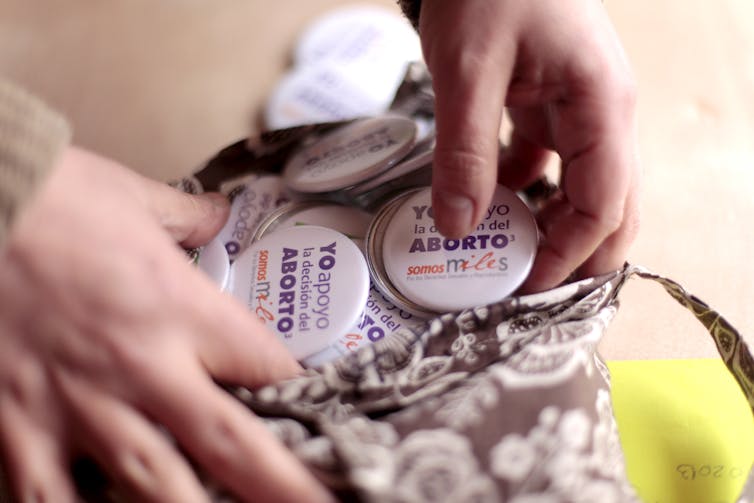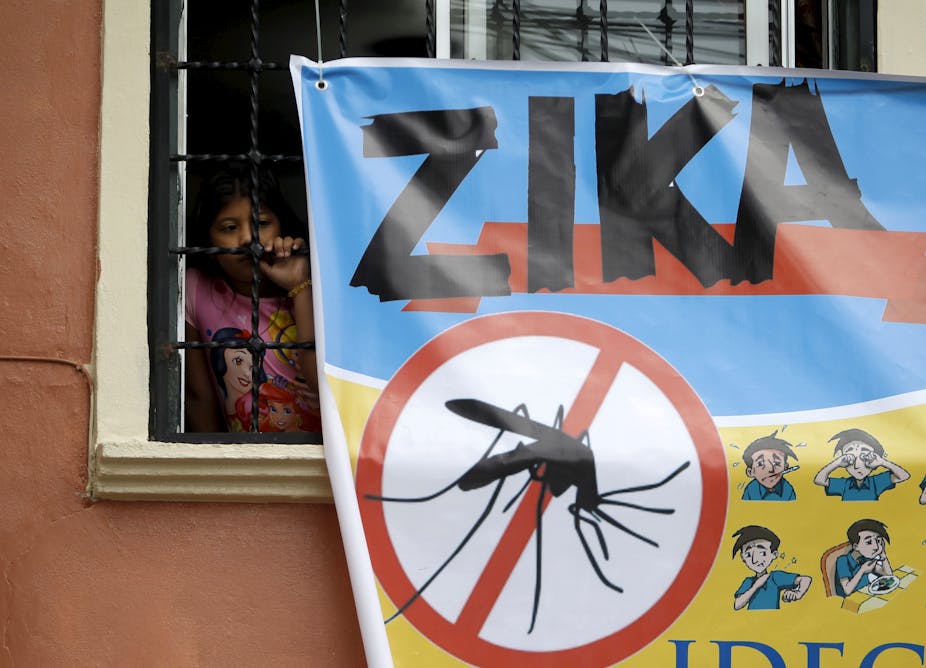The Zika virus outbreak and its probable association with microcephaly in newborns are prompting calls to loosen Latin America’s strict abortion laws and make birth control more readily available.
Abortion is fully criminalized in six countries in the region. In El Salvador, for instance, women who have abortions can face prison. In many other countries, including Brazil and Colombia, abortion is permitted only in cases of rape, incest or fetal impairment.
As Zika raises anxieties about babies born with significant medical problems, some physicians and reproductive health advocates think the virus should create another legal exception for abortion.
Even though abortion is outlawed in much of Latin America, women still seek it out at legal and physical risk. In fact, 13 percent of maternal deaths (the fourth highest cause) in the region can be attributed to unsafe abortions.
Concern about Zika could lead to real change for reproductive health for millions of women in the region. But this can happen only if the expansion of abortion and contraception is based on human rights and reproductive health equity, not driven primarily by fears of defective babies.

Abortion is restricted in most of Latin America
Abortion is fully criminalized, with no exceptions, in El Salvador, Chile, Dominican Republic, Haiti, Nicaragua and Suriname. In El Salvador, 30 to 40 women are serving prison sentences for seeking abortions.
In many other countries, including Argentina, Costa Rica, Bolivia, Brazil and Colombia, abortion is permitted under certain circumstances.
In Brazil, for instance, abortion has been allowed since 1940 in instances of rape or endangerment to the woman. Women who seek abortions outside these exceptions and the physicians who perform the procedure can be imprisoned.
In 2012, Brazil’s Supreme Court upheld anencephaly (the absence of parts of the brain and skull in the fetus) as a justifiable condition for the termination of a pregnancy, creating a new exception.
Health officials in Brazil have suggested that women avoid pregnancy until the Zika crisis is over. While Brazilian women are using contraception at a slowly increasing rate, up to 81 percent in 2006 from 78 percent in 1996, there are significant class and regional divides when it comes to access.
In 2006, Colombia’s Constitutional Court issued Decision C-355, guaranteeing three health exceptions for abortion: when the woman’s health is endangered, when serious malformations make the fetus unviable or when the pregnancy has resulted from criminal acts such as rape or incest. The decision was based, in part, on action from two groups called Women’s Link Worldwide and La Mesa.
Now that Zika is spreading in Colombia, affecting as many as 6,300 pregnant women, some physicians and women’s health advocates are eyeing the possibility of another exception.
While that possibility is debated, officials are urging women of childbearing age to avoid pregnancy, a suggestion as problematic as it is unrealistic. Colombia has high levels of unplanned pregnancy, and birth control is expensive.
El Salvador, Ecuador and Jamaica have made similar calls for women to delay pregnancy.
Why is access to birth control and abortion so restricted?
Up to one-half of sexually active women in Latin America have an unmet need for contraception. Up to 58 percent of pregnancies in Latin America are unintended (compared to 45 percent in the United States).
Many factors explain why birth control is out of reach for so many Latin American women. Cost can be a significant barrier to access, but it’s not the only one.

The Catholic Church and evangelical religions are stalwart opponents to abortion and contraception. Even when there is growing public support of birth control and abortion, legislatures have been exceedingly slow to enact change.
For instance, in the mid-2000s, then-President Luiz Inácio Lula da Silva sought to expand abortion in Brazil, casting it as an important public health issue. Despite rising public support, he could not obtain enough support from his own left-wing Worker’s Party (PT) to change existing law.
Judicial interpretation frequently invokes moral law about protecting the right to life from conception. For example, both Argentina’s Civil Code and Brazil’s Penal Code and Constitution uphold that life commences at conception. This has been invoked in a range of abortion cases.
Finally, mainstream media coverage of abortion tends to be negative and reflects patriarchal values around motherhood and reproduction.
These obstacles are why women’s rights groups and reproductive health advocates, like those who argued for exceptions in Colombia, have strategically used harm reduction and exception rationales to open wedges in ironclad abortion policies.
Where is abortion legal in Latin America?
Abortion is legal and accessible in just a few places in Latin America.
In 1979, Cuba fully legalized abortion and made it available as part of overall health services.
In 1995, Guyana allowed women to obtain abortions on request in the first eight weeks of pregnancy. After that, abortion is available under certain circumstances.
In 2007, following campaigns that involved women’s groups, supportive legislators and NGOs, Mexico City bucked national policy and decriminalized abortion in the first trimester. The decision was based on human rights, reproductive health and even sympathetic theological arguments.

In 2012, Uruguay made abortion available upon request in the first 12 weeks of pregnancy, following a five-day period of reflection for the woman considering termination. Later-term abortions are permitted in instances of rape and when a women’s health is endangered.
The seeds for this change were planted in the mid-2000s with the implementation of a “harm reduction model,” which allowed women to induce abortions using drugs like Mifeprex. Although this law depended on the logic of health exception, it was passed amid increasing emphasis on health equity. Since its passage, maternal deaths due to abortion have decreased markedly in the country. Uruguay now has the third lowest maternal death rate in the Americas after Canada and the United States.
Not surprisingly, contraception also is more accessible and accepted in countries where abortion laws are less restrictive. For example, a 2014 Pew Research Center poll found that only five percent of people in Uruguay believe contraception is morally wrong, compared to 45 percent in El Salvador.
Underground abortions are a major public health problem
Zika is a public emergency in Latin America, forcing nations to devote resources to halting its continued spread. But unsafe abortion is another public health crisis the region faces.
Latin America has the highest incidence of unsafe abortion in the world, resulting in approximately 1,100 maternal deaths per year. According to the Guttmacher Institute, of the 4.4 million abortions performed in all of Latin America in 2008, 95 percent were unsafe. About 760,000 women are hospitalized for complications from these substandard procedures each year.
Many of the women harmed by lack of access to abortion are indigenous, low-income or live in rural areas. They may not have money nor the legal resources to obtain abortions in private clinics or to make a case for an exception based on rape or incest.
Indeed, 1.6 million women are raped each year in Latin America, making access to emergency contraception and abortion all the more critical.
The Zika outbreak has the potential to promote change in abortion and birth control policies across Latin America. Yet these reproductive health options should not be framed simply as solutions to the latest health crisis or the specter of babies with deformities. Women need contraception and access to safe, legal abortion whether they are living in an area where Zika is active, or not.
Following the lead of Uruguay and Mexico City, framing abortion and contraception in terms of human rights and reproductive health equity could help expand access to these critical services for millions of women.

